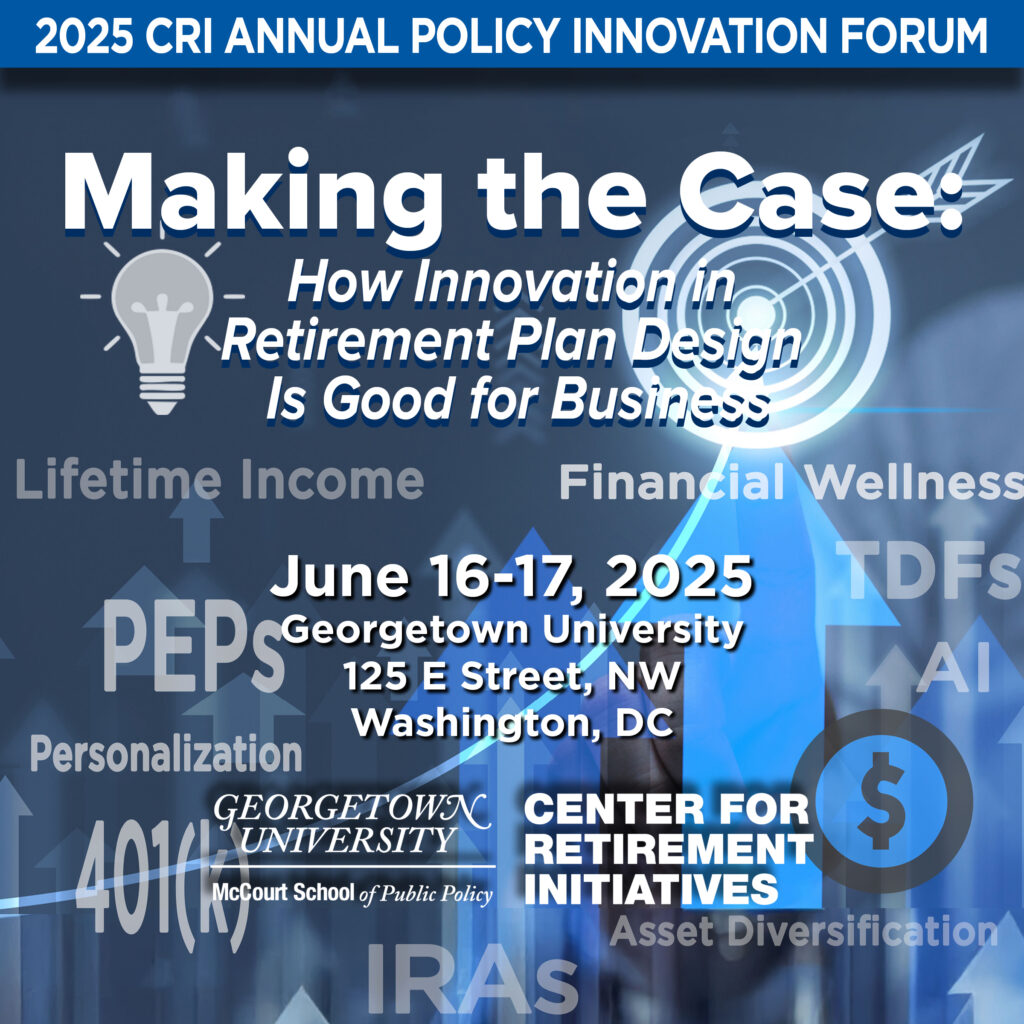
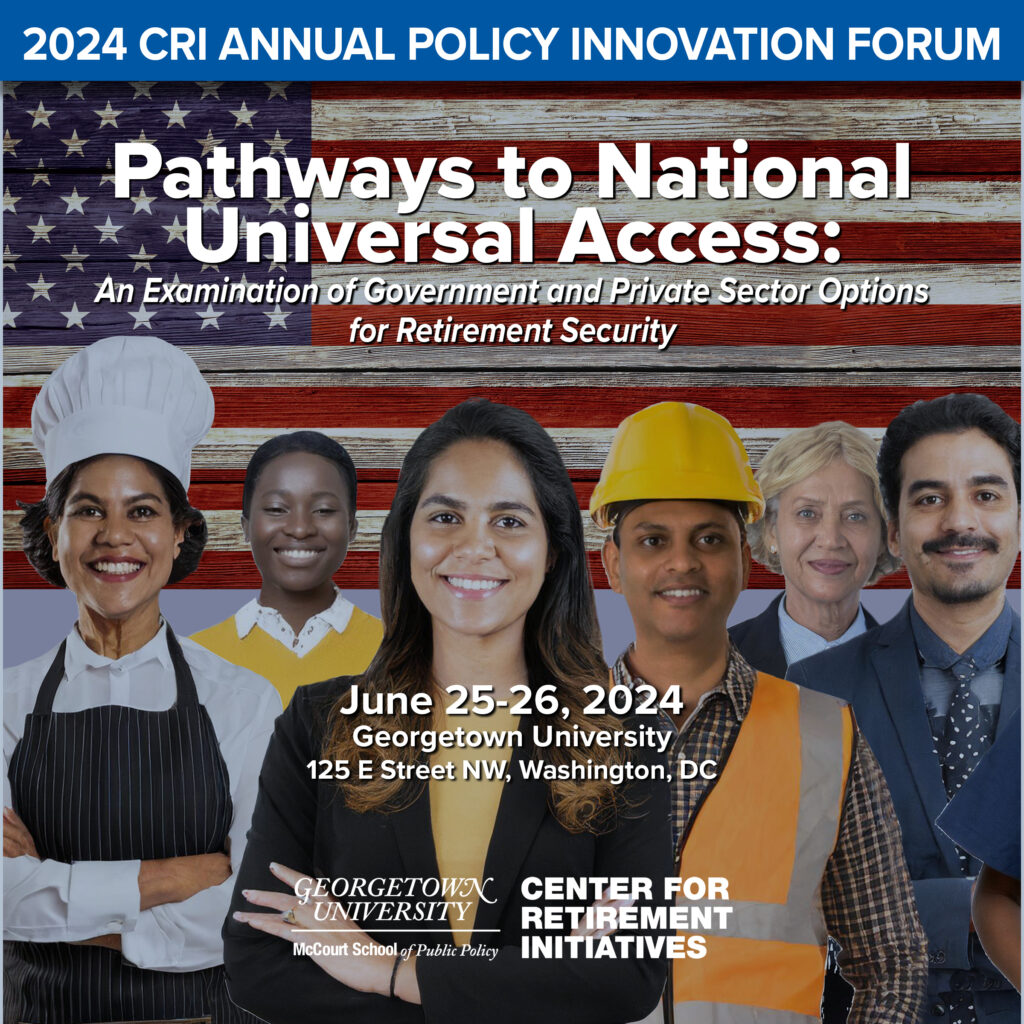
2024 Policy Innovation Forum
Tuesday, June 25, 2024 -Wednesday, June 26, 2024
On Wednesday, June 26, 2024, the CRI hosted its annual invitation-only 2024 Policy Innovation Forum at the CRI’s Georgetown University’s new McCourt School of Public Policy at 125 E Street NW in Washington, DC. A reception was held the evening before at the school’s spectacular new rooftop with stunning views of the Capitol and the city.
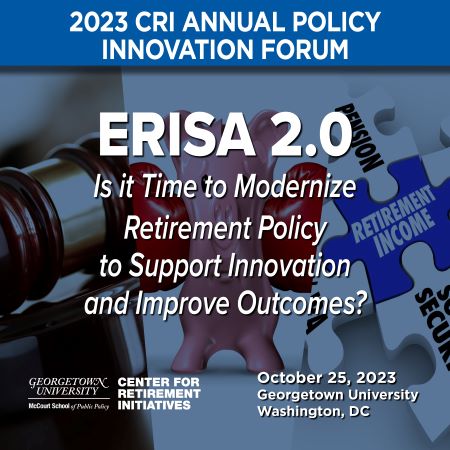
ERISA 2.0: Is It Time to Modernize Retirement Policy to Support Innovation and Improve Outcomes?
October 2023
On Wednesday, October 25, 2023, the CRI hosted its annual invitation-only 2023 Policy Innovation Forum at the CRI’s Georgetown University’s Capitol Hill offices and conference center at 500 1st Street NW, Washington, DC. View the forum program, participants, and event sponsors
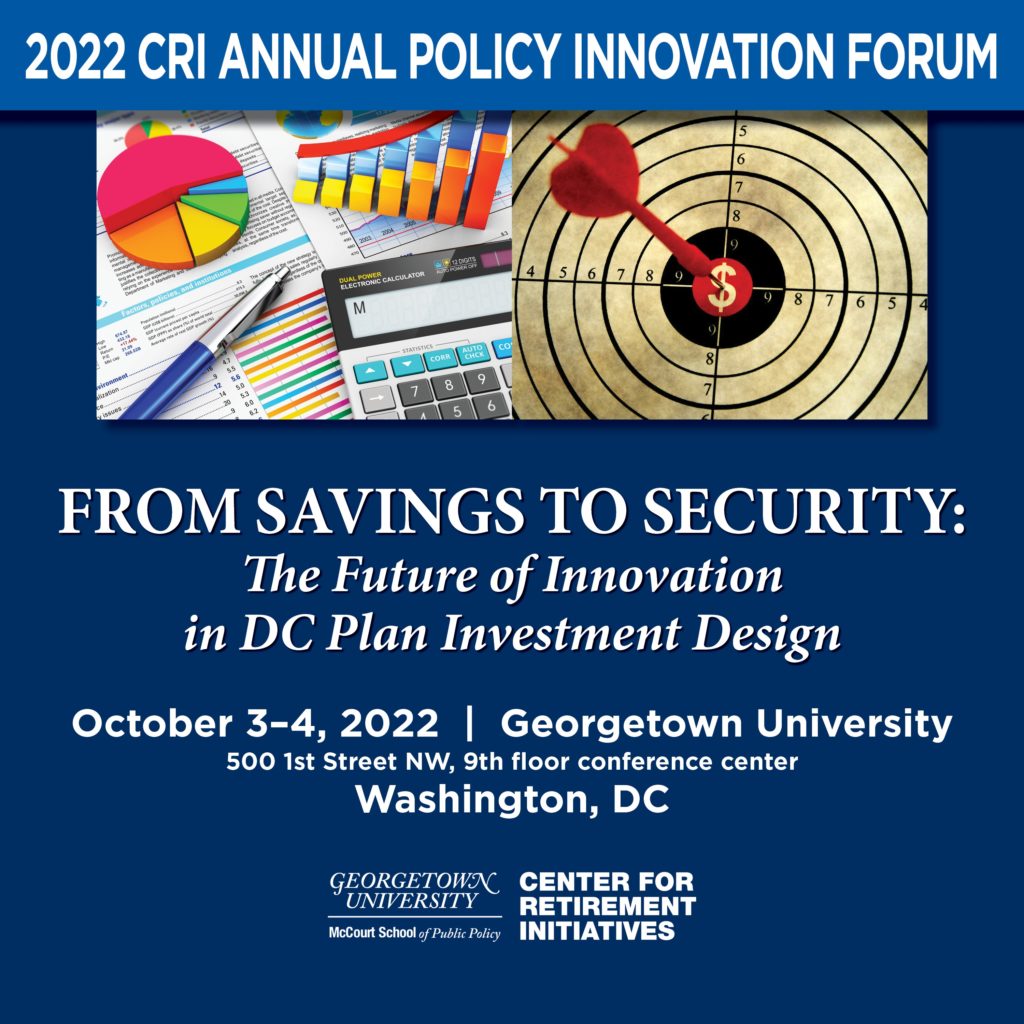
The Future of Innovation in DC Plan Investment Design
October 2022
The CRI hosted its annual invitation-only 2022 Policy Innovation Forum as an in-person meeting on October 3 and 4, 2022. We were excited to host this event at the CRI’s new Georgetown University’s Capitol Hill offices and conference center at 500 1st Street NW, Washington, DC.
This year’s invitation-only conference brought together policymakers and experts from the U.S. and other countries for in-depth conversations related to investment strategies for defined contribution (DC) retirement plans.
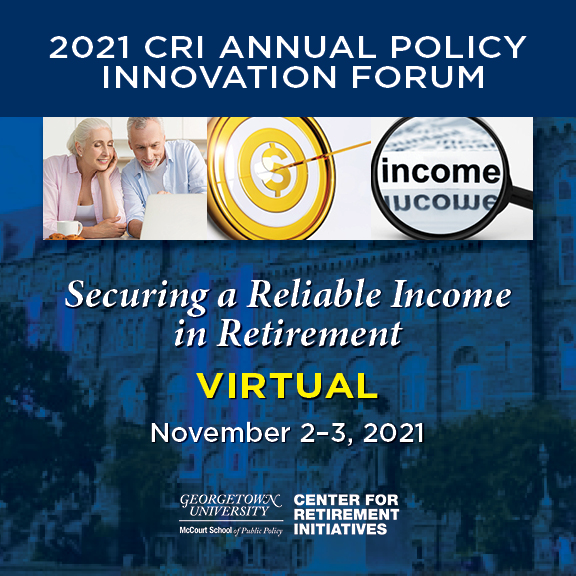
Securing a Reliable Income in Retirement
November 2021
The Georgetown Center for Retirement Initiatives (CRI) hosted an exclusive, invitation-only two-day virtual Policy Innovation Forum featuring U.S. and international thought leaders. The Forum is a premiere gathering where senior industry leaders, policymakers, and stakeholders discuss the key challenges of designing a retirement system focused on improving long-term outcomes to strengthen retirement security.
Because there is growing interest among both plan participants and plan sponsors in generating and protecting lifetime income, the 2021 Policy Innovation Forum focused on innovative new approaches being considered in the U.S. and other countries. The CRI issued a Call for Papers and the forum explored: 1) ways to address major risks to retirement income, including longevity, timing, investment, and inflation; and 2) major system designs and delivery reforms, including institutional changes both public and private, to address these major risks and generate income for retirees.
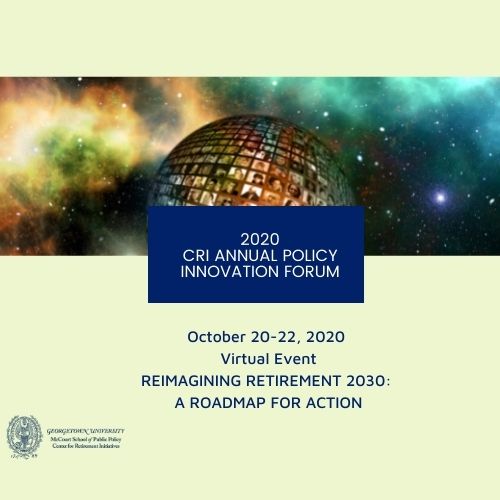
Reimagining Retirement 2030: A Roadmap for Action
October 2020
By 2030, all baby boomers will be over the age of 65, Generation X will start to retire, and millennials will be in their prime working years. How we work and how long we work will continue to change. The COVID-19 pandemic has only served to highlight the financial fragility of millions of Americans and how many have nothing saved for retirement or emergencies.
Important demographic and economic shifts will require leaders to come together to rethink access, savings, investment, and income strategies that will facilitate innovation, strengthen the economy, improve retirement security, and support overall financial well-being. What can — and should — policymakers, stakeholders, and the private sector do in the next five to 10 years realistically to make measurable progress toward building financial resiliency and improving today’s defined contribution (DC) retirement systems? Or, as Time magazine predicted in 2014, will 2030 be “the year that retirement ends”?
The Georgetown Center for Retirement Initiatives (CRI) hosted a three-day virtual Policy Innovation Forum that explored the trends, challenges, and solutions to shape the path forward for the next decade. The exclusive, invitation-only portion of the program included presentations from three keynote speakers: Bruce Mehlman, Jason Dorsey, and Nobel Laureate, Dr. Robert Merton.
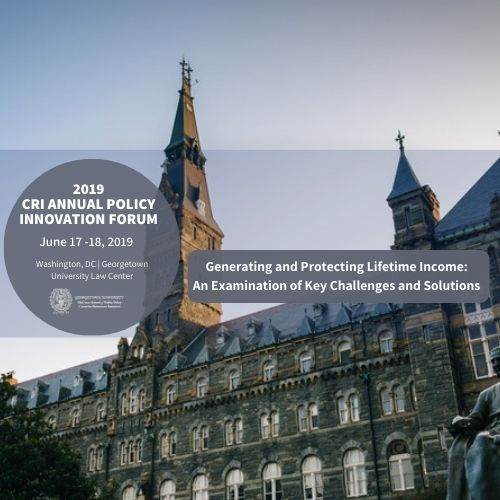
Generating and Protecting Lifetime Income:
An Examination of Key Challenges and Solutions
June 2019
For the first time, defined contribution (DC) plan assets account for more than 50% of total retirement assets in the seven largest pension markets globally. With the shift from traditional pensions to a DC-centric system, the responsibility for making complex retirement savings and investment decisions has shifted to individuals.
Key objectives for retirement income include stability, maximization, longevity protection, growth potential, cost, and liquidity. How can lifetime income solutions can help improve retirement outcomes by looking at potential income strategies and balancing the risk trade-offs associated with each solution?
Although few would dispute the need for lifetime income solutions, adoption rates by plan sponsors and participants have been low. The easier that policymakers and regulators make it for plan sponsors to offer lifetime income solutions, the greater the likelihood employers will adopt them.
The Georgetown Center for Retirement Initiatives (CRI) held an exclusive, invitation-only Policy Innovation Forum and released a new research report illustrating how a select set of different lifetime income solutions can help achieve retiree objectives.
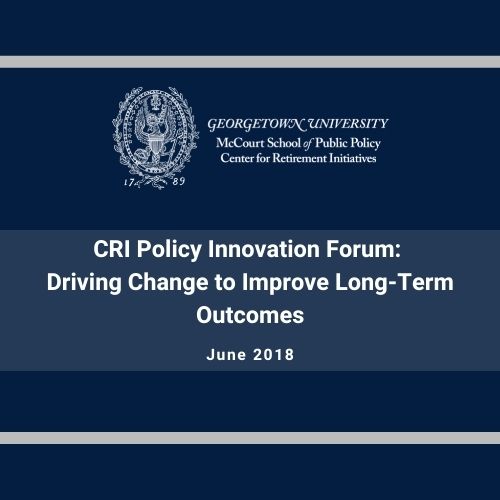
Driving Change to Improve Long-Term Outcomes
June 2018
A DC plan operates essentially as a DB plan for one person, with all the risks, costs, and responsibilities for investment performance and the decumulation of assets left to the individual saver to manage. To solve this problem, DC plans can seek to emulate the best aspects of DB plans. One of the most-successful features of DB plans that DC plans have begun to adopt is taking advantage of tools such as auto-enrollment and auto-escalation features that help workers begin to save meaningful amounts in DC plans.
Another way DC plans can learn from DB plans is by paying attention to simplicity in investment selections. An important consideration is whether the investment return of DC plans can be improved to deliver more income for the same contributions. If one dollar invested in a DB plan generates significantly more income than a dollar invested in a DC plan, that would suggest a need to explore whether greater asset diversification, including private equity, real estate, or hedge funds, can boost retirement income for the same level of contributions.
The Georgetown Center for Retirement Initiatives (CRI) held its first annual, invitation-only Policy Innovation Forum and released a new research report highlighting how target date funds (TDFs) can be modified to include alternative assets classes, and how this diversified TDF could increase the amount of annual retirement income.
